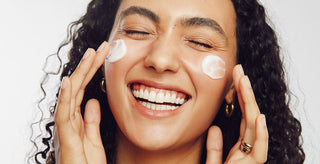As Stress Awareness Month unfolds, it's crucial to illuminate the profound connection between stress levels and our skin’s well-being. The impact of stress on our skin can be profound, often leading to unwelcome breakouts like acne. Stress can trigger hormonal fluctuations, increase inflammation, and disrupt the skin's natural balance, resulting in various skin issues. However, by embracing self-care practices and stress-relieving activities, you can nurture your skin and soul simultaneously. Understanding the Skin-Stress Connection: When stress levels soar, our bodies release cortisol, a hormone that can increase oil production in the skin. Excess oil can clog pores, leading to acne breakouts. Additionally, stress weakens the skin's barrier function, making it more vulnerable to environmental damage and bacterial infections. This can exacerbate existing skin conditions or trigger new ones, including eczema, psoriasis, and rosacea.
Ways to Avoid Picking and Promote Skin Healing:
1. **Healthy Skincare Routine**: Establish a gentle skincare routine using products suitable for your skin type. Cleansing, moisturizing, and protecting your skin daily can help maintain its health and resilience.
2. **Avoid Picking or Squeezing**: As tempting as it may be, avoid picking at your skin or popping pimples. Doing so can worsen inflammation, lead to scarring, and introduce bacteria, further complicating the situation.
3. **Mindful Stress Relief**: Engage in stress-relieving activities such as yoga, meditation, deep breathing exercises, or mindfulness practices. These activities can help calm your mind, reduce cortisol levels, and promote overall well-being.
4. **Stay Active**: Regular physical activity can help reduce stress and improve circulation, which is beneficial for your skin. Whether it's a brisk walk, a yoga session, or a dance class, find an activity that brings you joy.
5. **Healthy Diet**: Fuel your body with nutritious foods rich in antioxidants, vitamins, and minerals. A balanced diet can support your skin's health and resilience, aiding in the prevention of breakouts and promoting healing.
6. **Adequate Sleep**: Prioritize quality sleep to allow your body to rest and rejuvenate. Lack of sleep can exacerbate stress levels and contribute to skin issues, so aim for 7-9 hours of restful sleep each night.
7. **Seek Support**: Don't hesitate to reach out to a healthcare provider or a mental health professional if stress becomes overwhelming. Seeking support and guidance is a proactive step towards managing stress effectively. In conclusion, nurturing your skin goes hand in hand with nurturing your soul. By prioritizing self-care practices, stress management techniques, and healthy habits, you can safeguard your skin against the impacts of stress and promote overall well-being. Embrace this Stress Awareness Month as an opportunity to cultivate a deeper connection with yourself and your skin, paving the way for a healthier, happier you.


